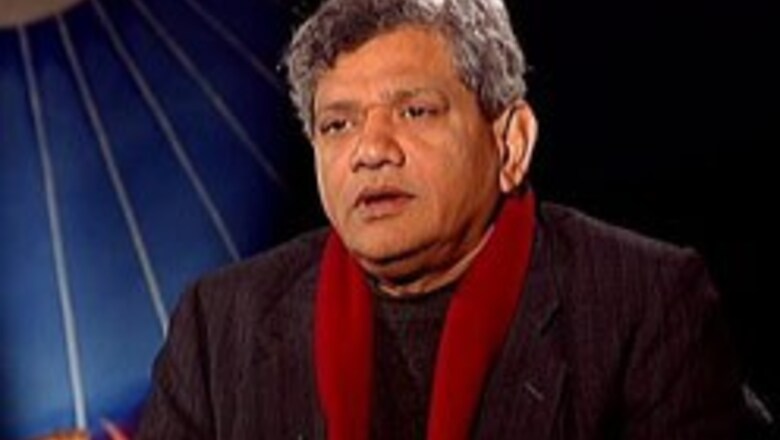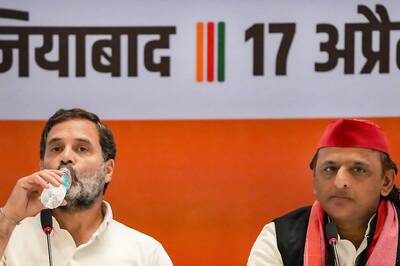
views
New Delhi: Objecting to an unchecked rise in the number of Special Economic Zones (SEZs) in India and urging a rethink on the tax sops extended to them, a senior Left leader has pushed the Chinese model for such projects.
Amendments have also been sought in four areas of India's SEZ policy, covering compensation and rehabilitation, land use, tax breaks and labour laws, Sitaram Yechury, politburo member of the Communist Party of India-Marxist (CPI-M), said.
"What we are saying is the land you are giving to the private people for SEZs, let that be state-owned," Yechury said.
"We are saying: fix a ceiling on SEZs; have a look at what sops you are giving in these SEZs," he said. "There should be a stated list of what is the sort of production activity that will be allowed in these SEZs," he added.
After the SEZ Act and Rules came into force February 10, 2006, 237 applications received a formal nod and 164 others were approved in principle. Out of the 237 formal approvals given, notifications were subsequently issued for 63 SEZs.
In contrast, China has only six SEZs, Yechury said. His remarks came in the wake of protests in several parts of the country over policies and rules governing the SEZs, especially on acquisition of farmland for industry that has resulted in loss of lives in some of the affected areas.
According to him, the existing policy of requiring just 25 per cent of the land for production purposes was a sure recipe for handing over the acquired land to what he termed as "real estate sharks" and inviting gross abuse of laws.
"What we are saying is minimum 50 per cent must be involved in production. Of the rest of the 50 per cent, 25 per cent would have to be for social infrastructure, such as roads, hospitals. And only in 25 per cent you permit builders."
Yechury was also opposed to blanket tax concessions given at the SEZs. "Till 2009, you are giving the IT industry a tax holiday. Now you are permitting IT SEZs. Which means for the next 15 years, another tax holiday."
"So for the sector that is growing the fastest in the country, how can you have a situation where they will not contribute anything to government revenues at all?" he queried.
"Also, some amazing concessions they have been offered. Like any builder who builds inside these SEZs need not pay excise duties on cement or steel - nothing. This would distort the normal process of industrialisation," he said.
In China, Yechury said, SEZs were owned by the Government, which developed them and then invited private companies to participate. A full tax break was given in the first year, 50 per cent in the second and none from the third.
"In China, they also have these special export zones. In them there are no taxes at all - just a value added tax. No import duty and no export duty. But in VAT alone, in Shanghai we saw, the earning is $25 billion a year."



















Comments
0 comment